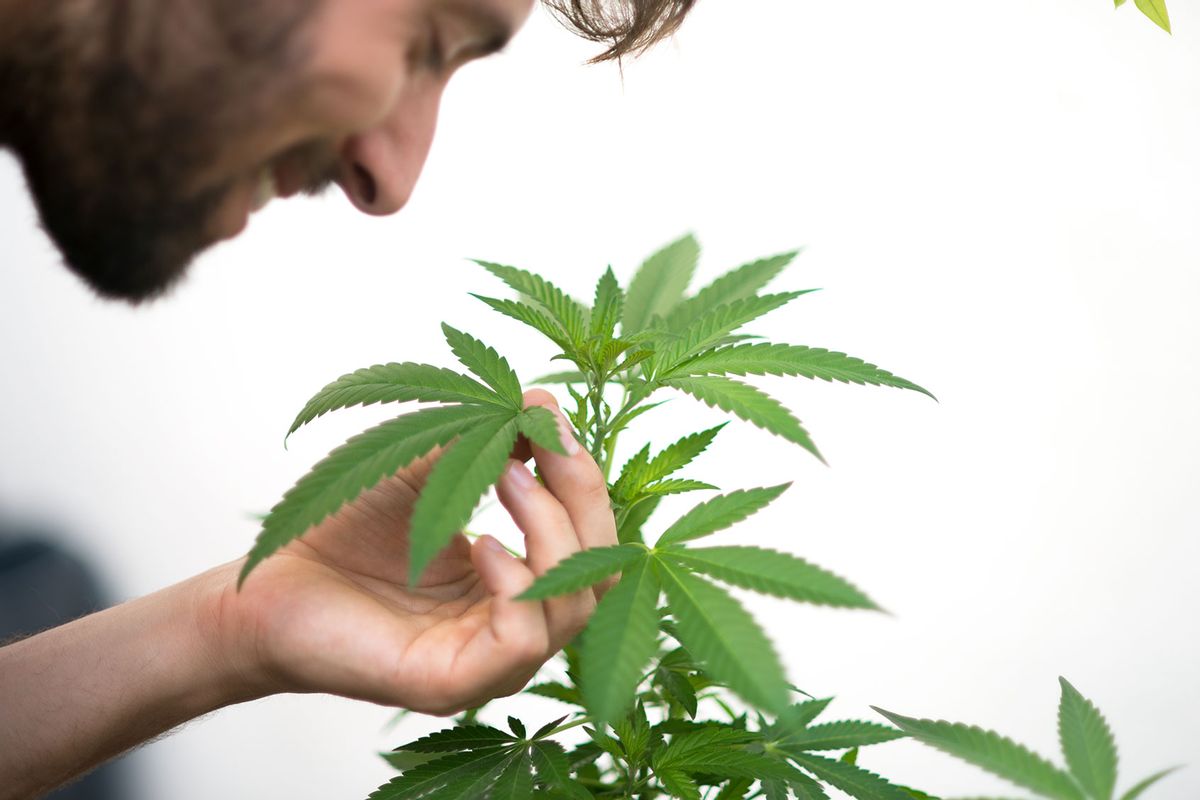Picture a person who enjoys smoking weed — a "stoner" or "pothead." For many people, Cheech & Chong jumps immediately to mind. The '70s bong-toking duo redefined drug use in comedy, cementing in the public consciousness tropes about cannabis users being dim-witted, incoherent and lazy (and also quite hilarious).
These stereotypes persist today. A 2019 analysis in the journal Visual Communication examined more than 450 depictions of marijuana users across 10 different media outlets before and after Colorado legalized adult-use cannabis.
"Users were often shown as rebellious protesters: lazy, aloof and unkempt 'drains' on societal resources, and radicals who embrace counter-cultural lifestyles," the authors reported. "Users were depicted as youthful party goers and pleasure-seekers, and overly-enthused about marijuana. Most of all, these images of smoke-covered music festivals and 20-somethings rolling oversized joints demarcated 'potheads' from ordinary, everyday people."
But new research challenges this popular perspective, finding that cannabis users probably aren't lazier than the general population. A study published last month in the International Journal of Neuropsychopharmacology disputes the idea that using cannabis decreases motivation or increases feelings of apathy and anhedonia, or the inability to feel pleasure from activities that were once enjoyable.
Researchers at the University of Cambridge and other institutes in the U.K. recruited participants from the Greater London area, finding 135 adults and adolescents who reported using cannabis an average of four times per week. For controls, they recruited 139 adults and adolescents who had tried cannabis at least once (but fewer than 10 times in their lifetime) and hadn't touched the drug in the past month. All participants were required to be sober for at least 12 hours prior to the experiment.
The authors predicted that individuals who use cannabis would have higher rates of anhedonia and apathy compared to controls and less willingness to expend effort for rewards. They also predicted that adolescents would do worse on these scales than adults. However, their hypotheses weren't supported.
"We were surprised to see that there was really very little difference between cannabis users and non-users when it came to lack of motivation or lack of enjoyment . . ."
"We were surprised to see that there was really very little difference between cannabis users and non-users when it came to lack of motivation or lack of enjoyment, even among those who used cannabis every day," the study's lead author, Martine Skumlien, a PhD candidate in the department of psychiatry at the University of Cambridge, said in a statement. "This is contrary to the stereotypical portrayal we see on TV and in movies . . . Our work implies that this is in itself a lazy stereotype, and that people who use cannabis are no more likely to lack motivation or be lazier than people who don't."
The participants were subjected to a battery of tests and surveys to measure their motivation and temperament. Apathy was measured with the Apathy Evaluation Scale, while anhedonia was scaled using the Snaith-Hamilton Pleasure Scale, which asked prompts like "I would enjoy being with family or close friends." One task involved the subjects pressing buttons to score points that were later exchanged for candy, which can measure "effort-based decision-making."
"Our results suggested that adolescents had higher anhedonia and apathy compared with adults, but that cannabis use did not augment this difference," the authors reported. "Our findings should help to reduce stigma experienced by people who use cannabis by further dispelling claims of the 'amotivational syndrome,' which increasingly appears lacking in scientific support."
These results, however, should be taken with a grain of salt, the authors caution. Because there are so many variables, it's very difficult to tease out these causal relationships from drug use. For example, this study only focused on individuals from the U.K., and there could be other ways cannabis impacts motivation that weren't screened.
This study is in line with other research that suggests laziness and marijuana use may be inaccurately conflated.
Nonetheless, this study is in line with other research that suggests laziness and marijuana use may be inaccurately conflated. The largest study to date on this topic, a 2020 report in the journal Substance Use & Misuse, surveyed 874 people who had reported using cannabis at least once in their life, which was weakly linked to decreased motivation.
"However, the size of these correlations was small, indicating that cannabis accounts for less than 8% of the variance in motivation," the authors reported. Instead, the decrease was most likely attributed to other factors, such as mental health, personality or using other drugs. In the Cambridge study, the authors tried to better control for these variables.
Want more health and science stories in your inbox? Subscribe to Salon's weekly newsletter The Vulgar Scientist.
More research is needed to really tease out this relationship, but this is some of the strongest evidence available showing that cannabis use and laziness probably aren't connected (though nothing has been completely ruled out). No research has been able to show a mechanism of action for this alleged relationship, either. In other words, if cannabis does make you lazy, we don't know how.
Thanks to Cheech & Chong, the idea that cannabis users are lazy and stupid, but generally harmless, became a mainstream perception. It may have been a step in the right direction, considering that the 1936 propaganda film "Reefer Madness" depicted cannabis users as violent psychopaths. Such ludicrous depictions of marijuana use have been largely debunked, with any such link largely associated with individuals who already have a history of violence or mental illness.
What will it take for the myth of the lazy stoner to be weeded out, or be replaced with something closer to the truth?



Shares